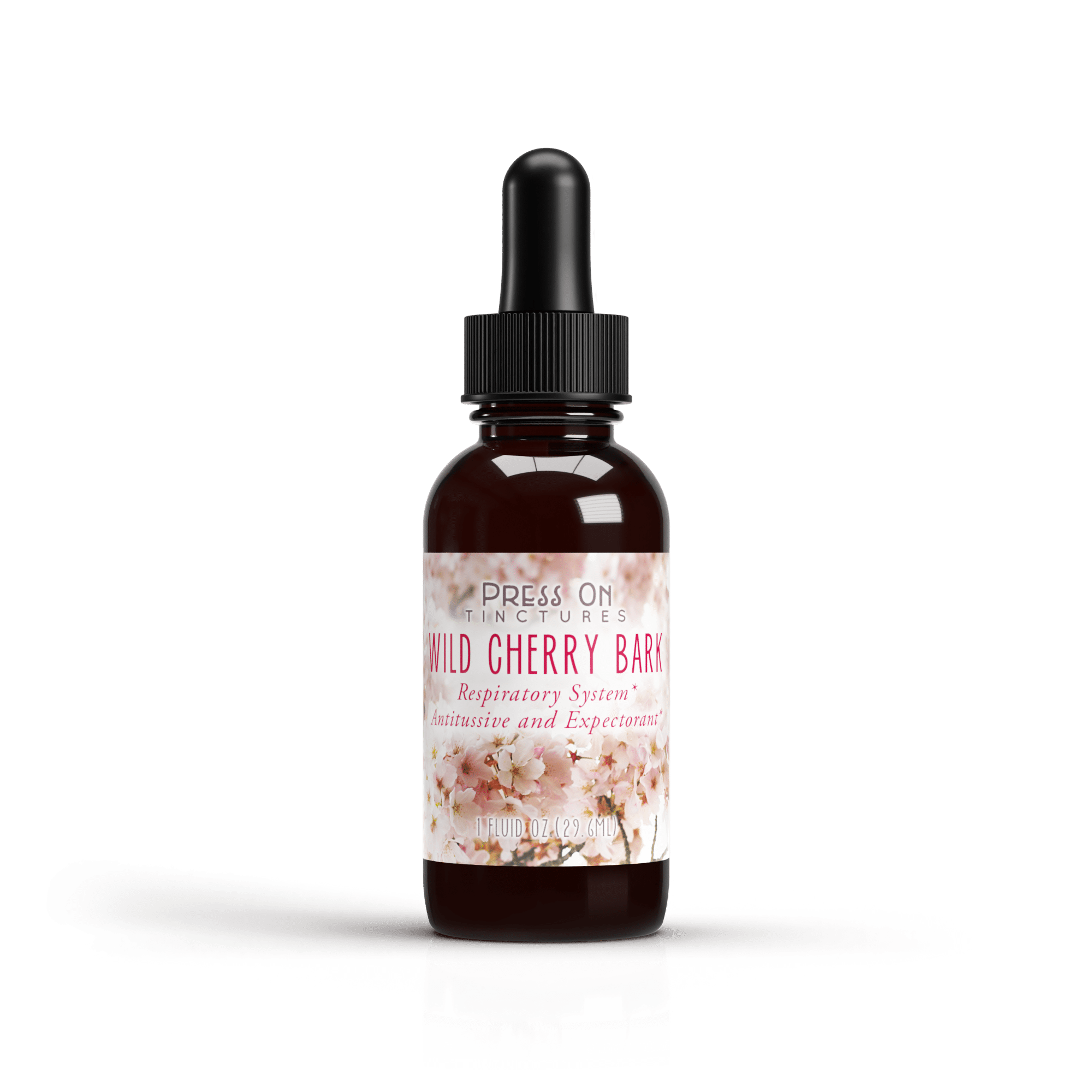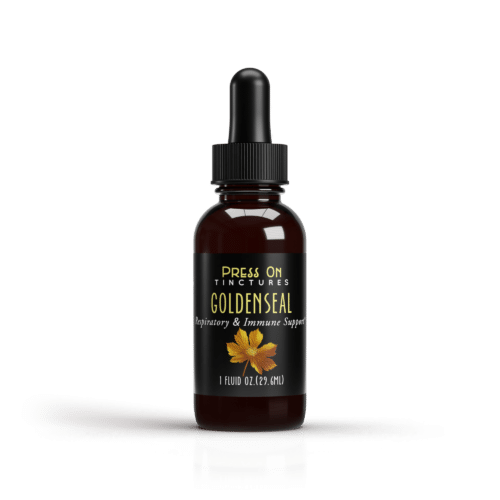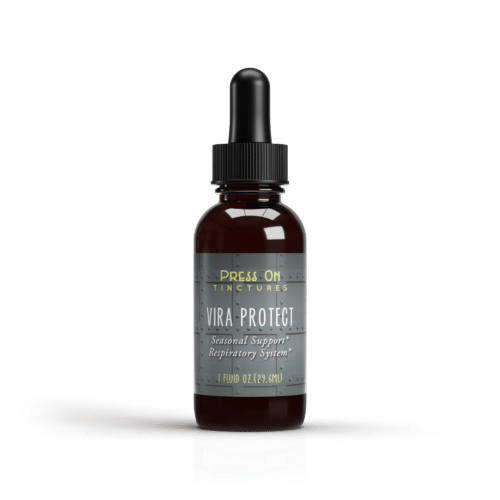1 oz bottle
Wild Cherry Bark Tincture – 1 oz Bottle – Press On Organic Products
$17.00
Description
Wild Cherry Bark – Prunus spp.
Wild cherry bark has gained popularity as an herbal remedy due to its well-known benefits. Wild cherry, botanically identified as Black Cherry (Prunus serotina) and Chokecherry (P. virginiana), belongs to the Rosaceae family, which includes many fruit-bearing plants. The wild cherry tree produces fragrant white flowers that bloom in clusters during spring, enhancing its ornamental and botanical appeal. Many people recognize the cherry flavor in cough syrups and cough drops but may not realize these products originate from these herbs (Black Cherry (Prunus serotina) and Chokecherry (P. virginiana)). Historically, Native Americans and western herbalists have used it as a respiratory and digestive aid. Wild cherry is native to the eastern United States, commonly found in woodlands and along streams. As commercial cough syrup and cough drop industries expanded, the cherry flavor remained popular, but the use of the actual herb began to decline. Numerous accounts highlight its nutritional support for respiratory issues, sore throats, coughs, mucus discharge, and digestive ailments. Some even recommend it to help soothe, coat, and relax mucous membranes.
Wild Cherry Bark Constituents
The bark contains cyanogenic glycosides, especially prunasin, along with tannins, gallic acid, resin, hydrocyanic acid, and prunasin. The concentration of cyanogenic glycosides increases in green, photosynthesizing bark, which is most prevalent in spring and fall. (Tilgner, Dr. Sharol (2020). Herbal Medicine. Wise Acres LLC.)
Reported Uses and Benefits
Cough Suppressant –
Wild cherry bark is commonly included in cough syrups for its drying and expectorant properties, helping to relieve persistent coughs and soothe throat irritation. It is also a frequent ingredient in cough drops to comfort the throat.
Expectorant in Nature –
The herb is traditionally used to support lung health by aiding in mucus clearance and easing congestion in the respiratory system.
Soothing A Sore Throat –
As a stimulating astringent, wild cherry bark helps alleviate sore throat discomfort.
Gastrointestinal Support –
Traditionally, the bark has been used to address diarrhea, indigestion, and gas.
Inflammation –
Some suggest that its key components may help reduce inflammation.
How to Use the Tincture
Wild cherry bark tincture is a simple and effective way to support respiratory health and overall wellness. For adults, the typical dosage is 1-2 teaspoons, taken 3-5 times daily—though individual needs may vary. The tincture can be taken directly under the tongue for quick absorption or diluted in a small amount of water or juice to soften its naturally bitter taste. For children, it is important to decrease the quantity and consult a healthcare professional before use, especially if the child is on medications or has underlying health conditions.
To enhance the soothing effects, consider combining the tincture with other herbs like peppermint or elderberry. Adding a few drops to hot water with honey creates a comforting herbal tea that can help calm coughs and promote restful sleep. The tincture also serves well as a flavoring agent in homemade herbal syrups or can be stirred into foods such as teas, soups, or desserts for a subtle cherry bark flavor that echoes traditional herbal wisdom.
Wild cherry bark, or Prunus serotina, contains natural compounds like hydrocyanic acid, which can be toxic in large amounts—a reminder that nature’s gifts require careful use. However, when prepared properly and consumed in small amounts as a dietary supplement, the bark’s astringent properties and medicinal benefits can support the respiratory system and ease digestive disorders. Remember, wild cherry bark tincture is not intended to diagnose, treat, cure, or prevent any disease but can be a valuable addition to your herbal wellness routine.
Native Americans have long used wild cherry tree bark to support respiratory health, a tradition that continues today, especially in eastern North America where the tree is native—a testament to enduring herbal knowledge. The fruit of the wild cherry tree—cherries—can be eaten fresh or used in recipes, while the bark is commonly made into herbal teas, syrups, and tinctures. To maximize the benefits of your wild cherry bark tincture, drink plenty of water, maintain a balanced diet, and consider pairing the tincture with other herbs or fruits to enhance both flavor and health benefits. Perhaps the greatest benefit lies in connecting with this ancient practice.
As with any supplement, consult a healthcare provider before starting wild cherry bark tincture, particularly if you are pregnant, nursing, or taking medications. By incorporating this traditional remedy into your routine, you can experience the unique benefits of wild cherry bark and support your body’s natural wellness, perhaps rediscovering the intuitive wisdom of our ancestors.
Additional information
| Weight | 3 oz |
|---|---|
| Dimensions | 1.3 × 1.3 × 4 in |





Sophia N. –
Very effective and high quality.
Owen J. –
Works great, definitely a new favorite.
Isabella D. –
Very effective and high quality.